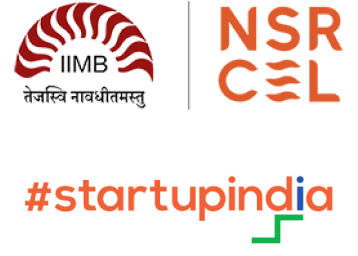Interviewing potential job candidates is one of the most critical tasks for employers. A candidate may look great on paper, but the interview is where you can truly assess their fit for the position and the company culture. Asking behavioral questions is a great way to get a sense of a candidate’s experience and how they approach challenges. A behavioral interview question is a type of interview question that is designed to elicit specific examples of how a candidate has behaved in past situations. These questions are often used to assess a candidate's skills, experience, and potential for success in a new role.
Behavioral interview questions typically begin with phrases such as "Tell me about a time when..." or "Give me an example of..." The idea is to ask the candidate to provide a specific example of how they handled a situation in the past rather than asking them how they would handle a hypothetical situation in the future.
For example, instead of asking a candidate, "How would you handle a difficult customer?" a behavioral interview question might be, "Tell me about a time when you had to deal with a difficult customer. How did you handle the situation, and what was the outcome?"
Employers can better understand a candidate's skills, experience, and work style by asking for specific examples of past behavior. These questions can help employers assess a candidate's problem-solving abilities, communication skills, leadership potential, and more.
Overall, behavioral interview questions are a valuable tool for employers looking to make informed hiring decisions based on a candidate's past behavior and track record. Here are 25 behavioral questions that should be asked in job interviews and why they matter.
Tell me about a time when you had to handle a demanding customer. How did you handle the situation?
This question is a great way to assess a candidate’s customer service skills and their ability to diffuse tense situations.
Give me an example of a project you worked on where you had to work with a difficult team member. How did you handle it?
This question can help you understand how a candidate navigates tricky office politics and interpersonal relationships.
Tell me about a time when you had to work under a tight deadline. How did you manage your time to meet the deadline?
This question is a great way to assess a candidate’s time management skills and ability to handle pressure.
Give me an example of a time when you had to think outside the box to solve a problem.
This question can help you understand a candidate’s creativity and ability to come up with innovative solutions.
Tell me about a time when you had to work on a project that required you to learn a new skill or technology. How did you approach it?
This question can help you understand a candidate’s ability to adapt to new situations and their willingness to learn new skills.
Give me an example of a time when you had to take charge of a project. How did you lead the team to success?
This question can help you assess a candidate’s leadership skills and their ability to take the initiative.
Tell me about a time when you had to deal with a difficult coworker. How did you handle the situation?
This question can help you understand a candidate’s conflict resolution skills and their ability to work well with others.
Give me an example of a time when you had to prioritize competing tasks. How did you decide which tasks to focus on first?
This question can help you assess a candidate’s ability to prioritize and manage their workload effectively.
Tell me about a time when you had to make a tough decision. What was the decision, and how did you make it?
This question can help you understand a candidate’s decision-making process and their ability to make tough calls.
Give me an example of a time when you had to navigate a complex project with multiple stakeholders. How did you manage communication and keep everyone on track?
This question can help you assess a candidate’s project management skills and their ability to navigate complex situations.
Tell me about a time when you had to deal with a demanding boss. How did you handle the situation?
This question can help you understand a candidate’s ability to manage and handle complex authority figures.
Give me an example of a time when you had to overcome a significant obstacle to achieve a goal.
This question can help you understand a candidate’s perseverance and ability to overcome challenges.
Tell me about a time when you had to collaborate with someone with a very different approach or work style. How did you make it work?
This question can help you assess a candidate’s ability to work well with diverse teams and adapt to different work styles.
Give me an example of a time when you had to manage a project with limited resources.
This question can help you understand a candidate’s resourcefulness and ability to work efficiently with limited resources.
Tell me about a time when you had to handle a high-pressure situation. How did you stay calm and focused?
This question can help you assess a candidate’s ability to manage stress and stay composed in challenging situations.
Give me an example of a time when you had to delegate tasks to team members. How did you decide who to delegate to and ensure everyone was on the same page?
This question can help you understand a candidate’s delegation skills and their ability to communicate effectively with team members.
Tell me about a time when you had to provide constructive feedback to a coworker or team member. How did you approach the conversation?
This question can help you assess a candidate’s communication skills and ability to provide feedback in a constructive and helpful way.
Give me an example of a time when you had to think on your feet to solve a problem.
This question can help you understand a candidate’s problem-solving skills and their ability to think quickly and creatively under pressure.
Tell me about a time when you had to handle a situation requiring attention to detail.
This question can help you assess a candidate’s attention to detail and their ability to complete tasks accurately and thoroughly.
Give me an example of a time when you had to learn something new quickly. How did you go about it?
This question can help you understand a candidate’s ability to learn quickly and their willingness to take on new challenges.
Tell me about a time when you had to admit to a mistake you made. How did you handle the situation?
This question can help you assess a candidate’s honesty, integrity, and ability to take responsibility for their actions.
Give me an example of when you had to communicate a complex idea to someone with little background knowledge on the topic.
This question can help you assess a candidate’s communication skills and ability to explain complex ideas clearly and concisely.
Tell me about a time when you had to handle multiple tasks at once. How did you manage to stay organized and on top of everything?
This question can help you assess a candidate’s organizational skills and ability to multitask effectively.
Give me an example of a time when you had to work with a team to achieve a shared goal. How did you contribute to the team’s success?
This question can help you understand a candidate’s teamwork skills and their ability to collaborate with others towards a common goal.
Tell me about when you had to step outside your comfort zone. What did you learn from the experience?
This question can help you assess a candidate’s adaptability and willingness to take on new challenges and grow professionally.
When it comes to using behavioral questions in job interviews, it's essential to keep in mind that they should not be the only basis for your hiring decision. It's also essential to consider a candidate's qualifications, experience, and cultural fit with the company.
Here are some tips on how to use these questions effectively in your job interviews:
Be specific: Instead of asking general questions like "Tell me about yourself," ask specific questions that relate to the job requirements and the candidate's experience.
Use open-ended questions: Ask questions that allow the candidate to share their experiences and thought processes in detail. Avoid questions that can be answered with a simple "yes" or "no."
Listen actively: Pay attention to the candidate's responses and ask follow-up questions to understand their thought process better and approach to different situations.
Look for patterns: Look for patterns in the candidate's responses that relate to the job requirements and the company's culture.
Be consistent: Use the same set of questions for each candidate to ensure consistency in your evaluation process.
On the other hand, here are some things to avoid when using behavioral questions in job interviews:
Don't rely on them exclusively: Remember that behavioral questions are just one part of the hiring process. Use them in conjunction with other evaluation methods to make a well-rounded hiring decision.
Don't ask leading questions: Avoid asking questions that suggest a desired response, as this can bias the candidate's answer.
Don't ignore red flags: If a candidate's responses raise red flags, such as unethical behavior or poor communication skills, follow up with additional questions or references to get a better understanding of the situation.
Don't ask irrelevant questions: Stick to questions that are directly related to the job requirements and the company's culture. Avoid asking questions that are not relevant to the job or could be perceived as discriminatory.
When using behavioral questions in job interviews, the interviewer should look for specific examples and details in the candidate's responses. Look for evidence of skills such as problem-solving, communication, teamwork, leadership, and adaptability. Pay attention to the candidate's thought process and approach to different situations, as this can give you valuable insights into their decision-making abilities and work style.
It's important to remember that behavioral questions should be used to help you evaluate a candidate's fit for the job and the company culture. Use them wisely, and you can gain valuable insights into a candidate's qualifications and potential for success.
In conclusion, asking behavioral questions in job interviews effectively assesses a candidate’s experience, skills, and ability to handle various situations. By asking these 25 questions, you can gain valuable insight into a candidate’s problem-solving, communication, teamwork, leadership, and more skills. Remember to listen closely to their responses and ask follow-up questions to understand their thought process better and approach different situations. Good luck with your interviews!





